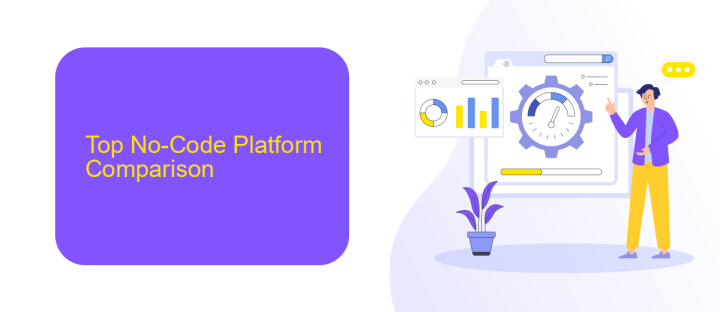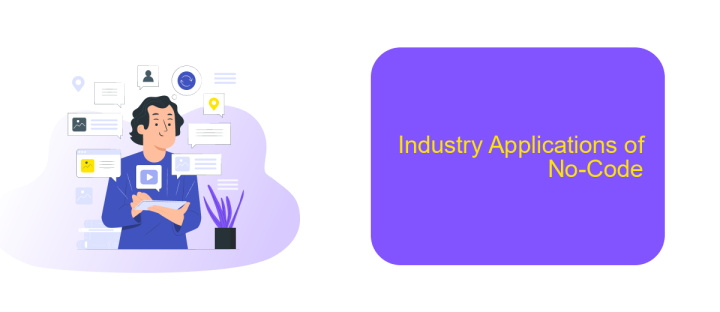Best No-Code
In today's fast-paced digital landscape, the demand for efficient and accessible software development has never been higher. No-code platforms are revolutionizing the way businesses and individuals create applications, websites, and automated workflows without needing extensive programming knowledge. This article explores the best no-code tools available, highlighting their features, advantages, and how they can empower you to bring your ideas to life quickly and effectively.
Introduction: Understanding No-Code
No-code platforms have revolutionized the way individuals and businesses approach software development. By eliminating the need for traditional programming skills, these tools allow users to create applications, websites, and automated workflows through intuitive visual interfaces. This democratization of technology empowers a broader audience to bring their ideas to life without relying on specialized developers.
- Ease of Use: Drag-and-drop interfaces simplify the creation process.
- Cost-Effective: Reduces the need for expensive development teams.
- Faster Deployment: Projects can be completed in a fraction of the time.
- Flexibility: Easily adapt and modify projects as requirements change.
One of the most significant advantages of no-code platforms is their ability to integrate with various services and APIs. Tools like ApiX-Drive enable seamless connections between different applications, automating workflows and enhancing productivity. By leveraging such integrations, users can create robust solutions tailored to their specific needs, without writing a single line of code.
Top No-Code Platform Comparison

Choosing the best no-code platform can be challenging given the myriad of options available. Bubble, for instance, is renowned for its flexibility and robust features, making it ideal for creating complex web applications. On the other hand, Adalo excels in mobile app development, offering an intuitive interface and a wide range of pre-built components. Both platforms empower users to bring their ideas to life without needing to write a single line of code.
For those focused on seamless integrations, platforms like Zapier and ApiX-Drive offer powerful solutions. ApiX-Drive, in particular, stands out with its user-friendly interface and extensive library of integrations, enabling businesses to automate workflows effortlessly. It supports a wide range of applications, from CRM systems to social media platforms, ensuring that users can connect their tools and streamline operations efficiently. Ultimately, the best no-code platform depends on your specific needs and the type of project you aim to develop.
Benefits and Challenges of Using No-Code

No-code platforms offer numerous benefits, making them increasingly popular among businesses and individuals. They enable rapid development and deployment of applications without the need for extensive coding knowledge. This democratizes technology, allowing non-developers to create and innovate. Additionally, no-code tools often come with pre-built templates and integrations, which can significantly reduce development time and costs.
- Speed: Rapid prototyping and deployment.
- Accessibility: Empowers non-developers to create applications.
- Cost-Effective: Reduces the need for hiring specialized developers.
- Flexibility: Easy to make changes and updates.
- Integration: Tools like ApiX-Drive simplify connecting various services.
However, no-code platforms also present challenges. They may offer limited customization compared to traditional coding, which can be a drawback for complex projects. Security concerns can arise due to the use of third-party services. Additionally, while no-code tools are user-friendly, there can still be a learning curve for those unfamiliar with software development concepts. Despite these challenges, the advantages of no-code platforms make them a valuable asset in today's fast-paced digital landscape.
Industry Applications of No-Code

No-code platforms are revolutionizing various industries by enabling individuals without technical expertise to create applications, automate workflows, and streamline processes. These tools are particularly beneficial for small businesses, startups, and non-technical teams looking to innovate quickly and cost-effectively.
In the healthcare sector, no-code platforms are being used to develop patient management systems, telemedicine applications, and automated appointment scheduling. Educational institutions are leveraging these tools to create e-learning platforms and manage administrative tasks more efficiently.
- Healthcare: Patient management systems, telemedicine apps, automated scheduling
- Education: E-learning platforms, administrative management
- Marketing: Campaign management, customer data integration
- Finance: Financial dashboards, automated reporting
Moreover, services like ApiX-Drive facilitate seamless integration between various applications, allowing businesses to automate data transfer and streamline operations without writing a single line of code. As no-code technology continues to evolve, its applications will only expand, making it an indispensable tool across multiple sectors.
Future Outlook of No-Code
The future of no-code platforms looks incredibly promising as businesses and individuals continue to seek faster, more efficient ways to build applications and automate processes. As technology advances, no-code tools are becoming increasingly sophisticated, allowing users to create complex solutions without needing to write a single line of code. This democratization of software development means that more people can bring their innovative ideas to life, driving a wave of digital transformation across various industries.
One significant aspect of the future of no-code is the seamless integration with other platforms and services. Tools like ApiX-Drive are leading the way by providing easy-to-use interfaces for setting up integrations between different applications. This allows businesses to automate workflows and synchronize data across multiple systems effortlessly. As no-code platforms continue to evolve, we can expect even more powerful integration capabilities, enabling users to build comprehensive, interconnected ecosystems that enhance productivity and streamline operations.
FAQ
What is no-code development?
Can no-code tools handle complex integrations?
How can no-code tools help in automating workflows?
Are no-code platforms secure?
Can no-code tools scale with my business?
Time is the most valuable resource in today's business realities. By eliminating the routine from work processes, you will get more opportunities to implement the most daring plans and ideas. Choose – you can continue to waste time, money and nerves on inefficient solutions, or you can use ApiX-Drive, automating work processes and achieving results with minimal investment of money, effort and human resources.

